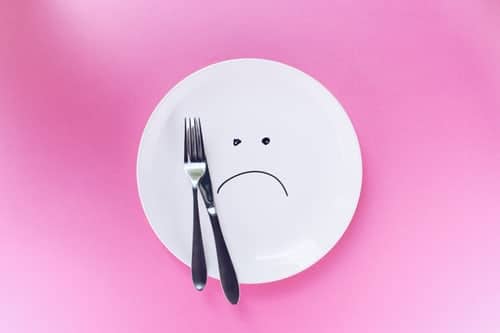
13 May How to Stop Emotional Eating
If you’ve ever given in to the urge to stuff yourself with snacks and sweets when feeling sad, and then regretted your lack of willpower, you’re likely prone to being an emotional eater. Food provides you comfort — but it’s also your greatest weakness and sometimes, worst enemy.
You’re well aware that this relationship to food isn’t healthy, but you feel powerless to change it. Maybe you just don’t know where to start, or maybe you’ve tried before, but failed and felt guilty about it. Whatever the case, we’re here to give you some advice on how to stop this unhealthy pattern and live a happier, more fulfilled life.
Pause and Check How You Feel
When you feel a craving for food, your first instinct might be to satisfy it right away. But before you do that, take a step back and check in with your feelings. Give yourself a chance to decide not to eat.
At first, it will be enough to wait a minute or two. Don’t put too much pressure on yourself and don’t beat yourself up if you fail to resist the craving. What’s really important is to become more mindful of what’s going through your head when the cravings happen, and to delay their satisfaction.
Keep a Diary
Diaries are a great way of working through your thoughts and feelings, so why not use them in your battle against emotional eating? Write down what you ate, how you felt before, during, and after eating, and what might have upset you.
Not only will journaling help you understand yourself better, but it will also show you your behavioral patterns. You’ll learn to identify your triggers, which will help you avoid them or cope with them.
Find Other Ways to Cope
Once you’ve figured out the potential triggers, it’s time to address them. Eating may provide some form of satisfaction, but it won’t fulfill you in the long run. In fact, it might make you feel even worse.
Instead, look for emotional fulfillment elsewhere. If you’ve identified that you’re feeling anxious, take a quick walk, listen to music, or buy yourself a stress ball. If you’re bored, a good book or chat with your friends might energize you and entertain you. These solutions aren’t just healthier — they deal with the very root of the problem, rather than just the symptoms.
Conclusion
Emotional eating can make you feel as if you’re not in control of yourself, which is rather demoralizing. But you don’t have to accept defeat — you can once again take your life into your own hands. It won’t be easy, but with these few steps, you’ll be on the right track.
If you would like to explore confidential, and professional medical guidance and treatment for an emotional eating condition, please schedule a free consultation appointment now with Dr. Blissenbach here.
